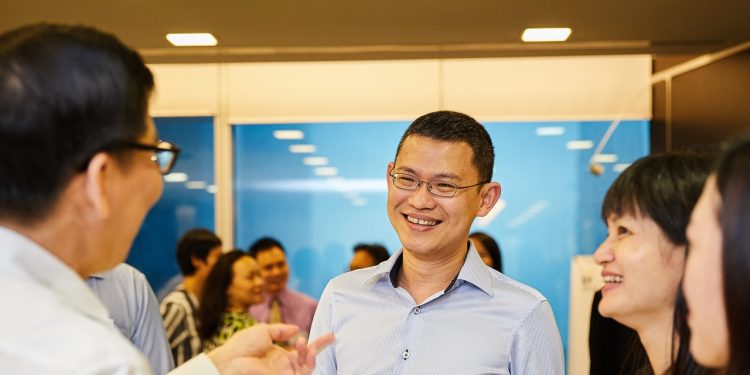Most managers focus on leading their teams to success, but for Ernst & Young Senior Manager Kuah Ee Wen, his concern goes further.
Fuelled by a passion to ensure the relevance of today’s accountancy education and its effectiveness to groom a pipeline of talents, Ee Wen took up the role of a co-examiner for the financial reporting module conducted under the Singapore Chartered Accountants Qualification examinations. He regularly reviews the examination questions and suggests solutions and marking guide for the module.
Together with professors from Singapore Management University and Singapore Institute of Technology, Ee Wen co-authored a textbook for university students titled “Advanced Financial Accounting, An IFRS Standards Approach (3rd Edition)” in 2017.
“I was inspired to do it as I had vivid memories as a fresh graduate who encountered numerous areas that were not covered in accounting textbooks back in school. These lessons were learnt on the job itself.
“I felt that there was also a need to update and enhance existing accounting knowledge. In this transformative age, disruptions such as blockchain, automation via artificial intelligence and cryptocurrency are taking the industry by storm. They will invariably lead to changes in the way that accounting is performed and auditing is done,” shared 40-year-old Ee Wen.
Investing Time for Long-Term Gains
As part of the assurance and the professional practice department in Ernst & Young, Ee Wen works with engagement teams on complex accounting and auditing issues and how best to provide solutions for their clients.
Despite his hectic work schedule, he took time out to co-author the textbook, which details recent developments in complex accounting areas that are not covered by existing accounting standards. While the experience was “akin to doing another module in Master of Business Administration”, Ee Wen stressed that it was worth it.
He explained: “In a way, it is also in the interests of practitioners to do this. This tripartite collaboration with the government and educational institutions will help to develop the next generation of business leaders and talents. This will also build an economy in which trust increases and investors make informed decisions. Smooth capital flows ensue, and this will have knock-on effects where businesses will grow sustainably. Employment rates will improve and so will consumer spending and government reinvestments in their citizens, eventually. This will ultimately create a better working world for everyone – a vision which our firm is committed to building.”
Transferring Knowledge to the Next Generation
Moving forward, he is integrating more practical examples of complex issues in a new edition of the textbook slated for end-2019.
“The wealth of experience that practitioners have is very valuable. It is at the forefront that they see accounting standards and their applications at play. It will no doubt be inspiring for the students if those knowledge and insights can be woven in as part of the school curriculum.
At Ernst & Young, he also regularly conducts accounting and auditing training for the next generation of auditors to keep them abreast of developments in industry standards.
“I believe that skills development and re-development are always a lifelong learning process. At different points in time, different skill sets are relevant. With constant disruptions, accountants and auditors will have to be equipped with new skill sets to keep ahead of the curve,” added Ee Wen.

